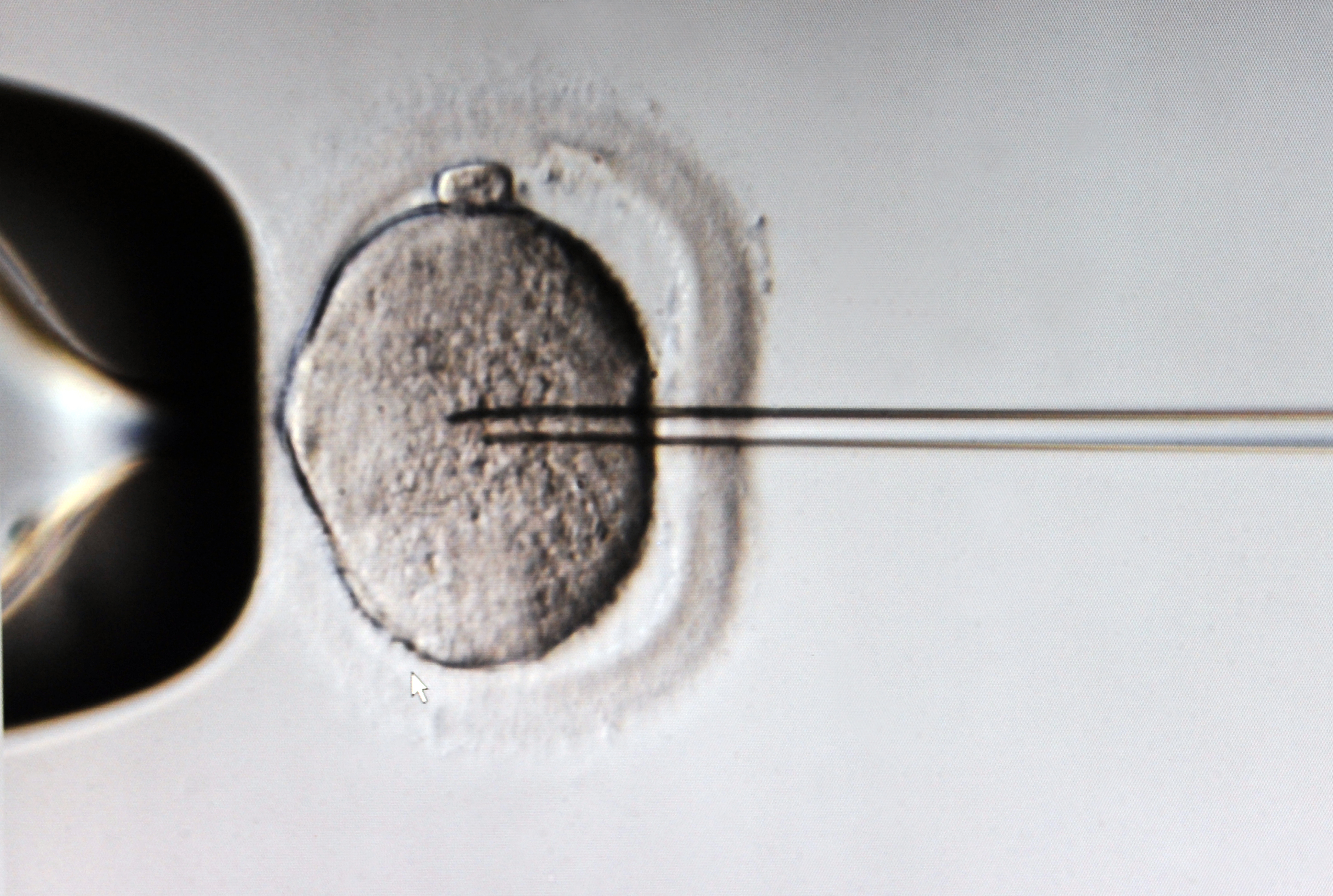A 'divinely created' being: States try to define fetal personhood

A monitor shows the microinjection of sperm into an egg cell using a microscope at the in vitro fertilization clinic, Kinderwunschzentrum Leipzig, in Leipzig, Germany, in 2011. (Photo by Waltraud Grubitzsch/picture-alliance/dpa/AP Images)
When is a human embryo not simply a clump of cells but a person with distinct legal rights? The answer, which holds much consequence in a post-Roe world, depends on the state where that embryo resides.
A Georgia law enacted in 2022 considers people to be “homo sapiens at any stage of development that is carried in the womb.” In Alaska, a bill before state lawmakers defines a person as an “entity that has the moral right of self-determination.” And in West Virginia, a measure moving through the legislature defines a person as a “divinely created” being entitled to “equal protection to the right of life.”
Such language also may affect when a parent can collect child support (Kentucky) or an individual be charged with murder (Iowa).
While the issue of fetal personhood has been part of the abortion debate for decades, it took the fall of Roe v. Wade and a woman’s constitutional right to abortion for the impact of personhood measures to become a reality.
“Without the protections of Roe as a backstop against this, what people are seeing are the real-world consequences of these laws,” said Dana Sussman, deputy executive director of Pregnancy Justice, a reproductive rights group.
Four states have passed personhood statutes, though one, in Arizona, was blocked by a court. At least 17 others have debated similar legislation in recent years, according to data from Pregnancy Justice, the Center for Reproductive Rights and the Guttmacher Institute, a nonprofit research center that supports abortion rights. Those efforts are separate from often-longstanding references to personhood in states’ criminal codes.
Alabama added a fetal personhood clause to its constitution in 2018. Six years later, the Alabama Supreme Court pointed to that amendment in ruling that frozen embryos created through in vitro fertilization were “extrauterine children.” Anyone who destroyed a frozen embryo, either willfully or accidentally, could be held liable, the court concluded.
The decision last month sent shock waves through the IVF community in the state as well as nationally and quickly prompted Alabama legislators to try to safeguard the process. Gov. Kay Ivey (R) signed their bill into law on March 6; it protects both providers and patients involved in IVF from criminal or civil liability should an embryo be damaged or destroyed.
Despite the legislature’s effort, Candace Gibson of the Guttmacher Institute says the events in Alabama will continue to resonate widely. “The Alabama ruling will embolden some anti-abortion policymakers to pursue fetal personhood,” she said.
Here’s a look at some of the bills proposed in state legislatures this year:
Colorado: H.B. 24-1224 defined a person as an unborn child at any stage of development, “from fertilization at the fusion of a human spermatozoon with a human ovum.” It died in committee on March 4.
Florida: S.B. 476 defines a fetus as an “unborn child” shielded by civil negligence laws. It was postponed in late February, when lawmakers worried that it could threaten IVF.
Illinois: H.B. 2606 defines an “unborn child” as a person from “the species homo sapiens from fertilization until live birth.”
Missouri: H.B. 1616 says that life begins at conception and that “unborn children” have the same “rights, powers, privileges … granted by the laws of this state to any other person.”
South Carolina: H.B. 3549 says that an “unborn child at any stage of development” is a person who, if attacked or killed, “is afforded equal protection” under the state’s assault and homicide laws.
Write a letter to the editor, share a story tip or update, or report an error.



